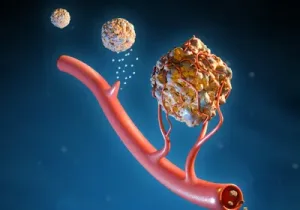For decades, groundbreaking medical advancements, public health initiatives, and advocacy efforts have driven significant progress in the fight against HIV. Since 2001, these efforts have helped prevent over 16.5 million AIDS-related deaths worldwide. However, the epidemic is far from over.
In 2023 alone, more than one million people globally contracted HIV—an alarming statistic that underscores the need for urgent action. Compounding this crisis, funding for HIV programs has declined by nearly 8% since 2020, threatening to reverse decades of hard-won progress. With less than 2,000 days remaining to meet the UNAIDS goal of ending HIV by 2030, immediate and sustained action is critical.
The Role of Innovation in HIV Prevention & Treatment
Scientific innovation has transformed HIV care, improving both prevention and treatment. These breakthroughs include:
✅ Antiretroviral Therapy (ART): Ensures rapid and sustained viral suppression, making HIV undetectable—and therefore untransmittable (U=U).
✅ Pre-Exposure Prophylaxis (PrEP): A preventive treatment that significantly reduces the risk of acquiring HIV.
✅ Community-Based Care Models: Address cultural and systemic barriers to HIV prevention and treatment, especially in underserved populations.
These advancements have driven remarkable success stories. For example, in the UK, 97% of individuals with diagnosed HIV who undergo regular treatment have achieved viral suppression. However, disparities persist, and not everyone has equal access to life-saving care.
Global HIV Trends: A Call for Urgent Action
Despite scientific progress, troubling trends remain:
🔹 Rising HIV Diagnoses: In England, new HIV diagnoses among heterosexual men and women have surged by 30% since 2022.
🔹 Disproportionate Impact on Minority Communities: Ethnic minority heterosexuals in England saw a staggering 45% increase in new diagnoses.
🔹 Undiagnosed Cases: More than 1 in 10 people in the EU/EEA remain unaware of their HIV status.
The ongoing crisis isn’t due to a lack of medical solutions—it’s a matter of prioritization, funding, and systemic barriers. Without targeted interventions, progress could stall or even reverse.
Breaking Barriers: Ensuring Equitable Access to HIV Care
Healthcare systems must ensure that innovation reaches those who need it most. Dr. Junko Tanuma, a leading global health expert, emphasizes:
“Scientific progress has brought us this far, but without equitable access, millions will be left behind. Governments and healthcare systems must act swiftly to eliminate barriers and expand care access.”
Key strategies to improve access include:
- Increasing HIV Testing & Awareness: Many people remain undiagnosed due to stigma and limited access to testing services.
- Scaling Up Community-Based Initiatives: Programs like Germany’s “Your Health, Your Faith” project have successfully reached at-risk communities through culturally sensitive education.
- Securing Long-Term Funding: Governments must prioritize sustained HIV funding to prevent regression in progress.
The Clock is Ticking: A Call for Collective Action
Ending HIV by 2030 requires global collaboration between governments, researchers, healthcare providers, and affected communities. The Going the Extra Mile to End the HIV Epidemic report, published by Gilead Sciences and Boston Consulting Group, outlines evidence-based approaches to overcome barriers and accelerate progress.
Neil Mulcock, VP of Government Affairs & Policy at Gilead Sciences, stresses the urgency:
“What got us here won’t get us to 2030. We need a fundamental shift in how we invest in research, prevention, and care delivery. The time to act is now.”
A Future Without HIV Is Within Reach
The global fight against HIV has come a long way, but challenges remain. By embracing innovation, funding critical programs, and ensuring equitable access to care, we can make the vision of ending HIV by 2030 a realit
#EndHIV #HIVAwareness #GlobalHealth #Innovation #HIVPrevention #UNAIDS2030




+ There are no comments
Add yours